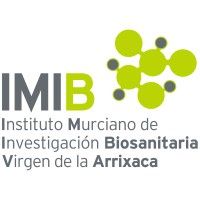Request Demo
Last update 20 Dec 2025
4-octyl itaconate
Last update 20 Dec 2025
Overview
Basic Info
Drug Type Small molecule drug |
Synonyms 4-OI |
Target |
Action inhibitors, stimulants |
Mechanism NLRP3 inhibitors(NACHT, LRR and PYD domains-containing protein 3 inhibitors), Nrf2 stimulants(Nuclear factor erythroid 2-related factor 2 stimulants) |
Therapeutic Areas |
Active Indication |
Inactive Indication- |
Originator Organization |
Inactive Organization- |
License Organization- |
Drug Highest PhasePreclinical |
First Approval Date- |
Regulation- |
R&D Status
10 top R&D records. to view more data
Login
| Indication | Highest Phase | Country/Location | Organization | Date |
|---|---|---|---|---|
| Sepsis | Preclinical | China | 16 Jun 2025 | |
| Cryopyrin-Associated Periodic Syndromes | Preclinical | Spain | 23 May 2025 | |
| postoperative cognitive dysfunction | Preclinical | China | 22 Apr 2024 | |
| Systemic Lupus Erythematosus | Preclinical | China | 22 Nov 2018 |
Login to view more data
Clinical Result
Clinical Result
Indication
Phase
Evaluation
View All Results
Login to view more data
Translational Medicine
Boost your research with our translational medicine data.
login
or

Deal
Boost your decision using our deal data.
login
or

Core Patent
Boost your research with our Core Patent data.
login
or

Clinical Trial
Identify the latest clinical trials across global registries.
login
or

Approval
Accelerate your research with the latest regulatory approval information.
login
or

Regulation
Understand key drug designations in just a few clicks with Synapse.
login
or

AI Agents Built for Biopharma Breakthroughs
Accelerate discovery. Empower decisions. Transform outcomes.
Get started for free today!
Accelerate Strategic R&D decision making with Synapse, PatSnap’s AI-powered Connected Innovation Intelligence Platform Built for Life Sciences Professionals.
Start your data trial now!
Synapse data is also accessible to external entities via APIs or data packages. Empower better decisions with the latest in pharmaceutical intelligence.
Bio
Bio Sequences Search & Analysis
Sign up for free
Chemical
Chemical Structures Search & Analysis
Sign up for free



